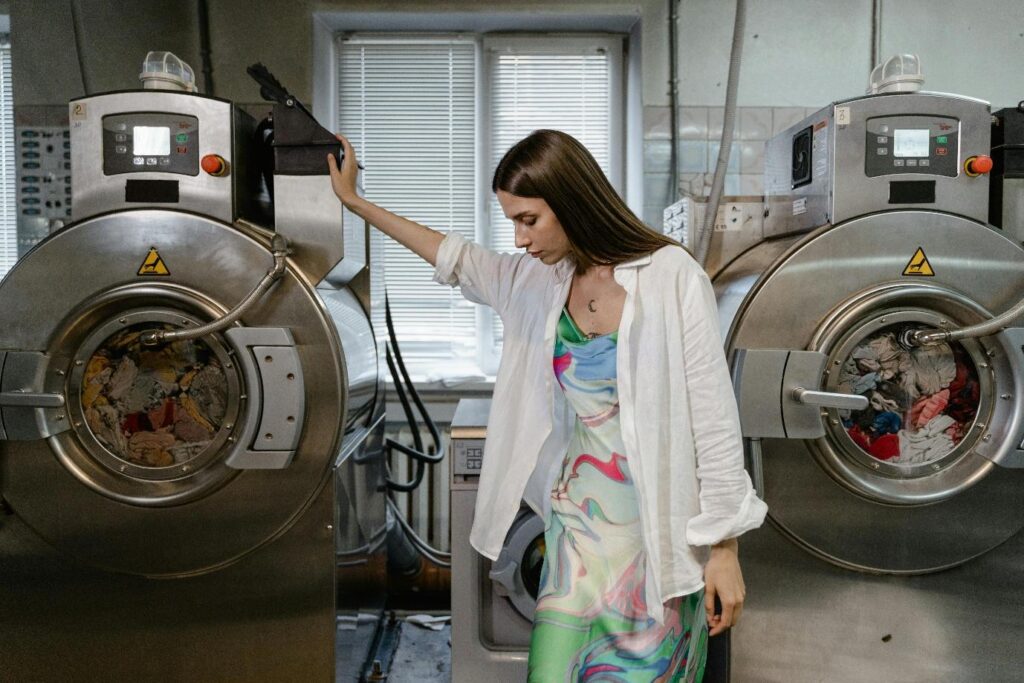Juggling multiple gigs means I’m always on the lookout for tools that help me stay organized and efficient. Whether I’m delivering food across town or picking up freelance projects online the right apps can make all the difference in my workflow. Every minute and mile count when I’m hustling to maximize my earnings.
One thing I’ve learned is that a reliable mileage tracker app isn’t just a nice-to-have—it’s essential. Tracking my miles accurately saves me time at tax season and ensures I don’t miss out on valuable deductions. But that’s just the start. There’s a whole toolkit of apps designed to help gig workers like me manage tasks, finances, and schedules with ease.
Why Gig Workers Need the Right Tools
Efficient gig work demands tools that automate tracking, scheduling, and financial organization. Managing several app-based gigs like DoorDash, Uber, and Fiverr means switching rapidly between tasks. I depend on specialized software to keep my workflow streamlined and deadlines visible.
Accurate mileage tracking stands out as essential, especially when I use my car for delivery, rideshare, or field service work. IRS deductions in the US hinge on meticulous records—automatic mileage recording apps shield me from manual entry errors and lost deduction opportunities. Apps also generate reports that simplify expense documentation when submitting tax returns.
Task management tools let me prioritize high-earning gigs and maintain punctuality. Daily notifications keep my multi-platform schedule organized, reducing double-booking risks.
Financial tracker apps give me real-time analytics on income and expenses across various gig platforms. I group transactions by business category, quickly see net earnings per gig, and spot areas for cost-saving. Cloud-based receipt storage eliminates paper clutter and centralizes vital tax documents.
Communication apps bolster client interaction and collaboration, ensuring I never miss updates. Access to platform performance analytics helps me make data-driven moves to maximize earnings.
Choosing robust, integrated tools gives me clarity, boosts my hourly efficiency, and supports financial compliance. Reliable toolkits form my backbone for consistent, professional results as a modern gig worker.
Essential Apps for Gig Workers
Streamlining gig work depends on leveraging apps that automate key tasks and improve daily workflows. I use specialized apps to find jobs, organize schedules, and maintain steady communication.
Task and Job Finding Platforms
Gig job platforms connect me with a steady flow of available work. Apps like DoorDash, Uber Driver, and Fiverr list real-time job opportunities across delivery, rideshare, and freelancing. Instant notifications let me secure high-demand gigs and fill schedule gaps efficiently.
Time Management and Scheduling Tools
Scheduling apps improve my time allocation and punctuality for each gig. I rely on tools like Google Calendar, Shift, and Trello to set reminders, block out shifts, and track multitasking. Automated alerts let me avoid overbooking and missing deadlines, reducing stress and boosting productivity.
Communication Applications
Reliable communication apps help me manage customer and client interactions. I typically use Slack, WhatsApp, or Telegram to respond quickly to messages, negotiate with clients, and clarify gig instructions. Real-time notifications and file sharing capabilities support collaboration and timely service delivery.
Importance of a Reliable Mileage Tracker
Accurate mileage tracking directly impacts my tax deductions and compliance. The IRS accepts mileage logs as proof for deductible business expenses, but only if records are consistent and detail every trip, including date, distance, and purpose. Manual logging of miles for dozens of weekly rides or deliveries, such as with Uber Eats or DoorDash, increases my risk of errors and lost deductions, which could lower my yearly financial return.
Automatic mileage tracker apps record each trip in real time, eliminating manual entry. Examples like MileIQ and Everlance use GPS to categorize trips automatically, ensuring every work-related mile appears in my tax documentation. These tools also generate reports that match IRS compliance formats, which removes uncertainties during audits.
Efficient mileage tracking also helps me analyze route patterns to reduce driving time and expenses. Reviewing categorized trips monthly lets me optimize scheduling across platforms like Uber, Instacart, or Amazon Flex. Reliable automated tracking maximizes my allowable deductions and saves me hours, especially during tax filing season.
Top Mileage Tracker Apps for Gig Workers
Accurate mileage tracking boosts tax savings and financial compliance for gig workers. Reliable apps automate record-keeping, eliminating errors from manual entry.
Key Features to Look For
Automatic trip detection ensures gig mileage tracks in real time without extra steps. IRS-compliant reporting provides detailed logs that support every deduction. Multi-platform access allows me to record and review mileage on both iOS and Android. Expense categorization separates gig driving from personal trips, improving organization. Cloud backup protects my data and syncs trips across devices. Integration with apps like QuickBooks or Gridwise streamlines end-of-year reporting.
Recommended Mileage Tracking Apps
| App | Automatic Tracking | IRS-Ready Reports | Device Support | Integration | Noted Benefit |
|---|---|---|---|---|---|
| MileIQ | ✅ | ✅ | iOS, Android | QuickBooks | 40 free trips/month, reliable accuracy |
| Everlance | ✅ | ✅ | iOS, Android | Xero | Expense tracking, flexible reporting |
| Stride | ✅ | ✅ | iOS, Android | TurboTax | Free, unlimited mileage tracking |
| Hurdlr | ✅ | ✅ | iOS, Android | FreshBooks | Auto expense/earnings tracking |
| TripLog | ✅ | ✅ | iOS, Android | SAP Concur | Custom reports, business card syncing |
MileIQ auto-logs drives and exports data for easy tax prep. Everlance combines mileage with receipt scanning and expense tags. Stride offers unlimited free mileage tracking with built-in tax tools. Hurdlr tracks mileage, income, and expenses automatically, adding value for multi-app gig workers. TripLog specializes in advanced report export and team features, useful for those juggling several vehicles or business entities.
Financial Management Apps Every Gig Worker Should Have
Expense tracking apps simplify gig income and outflow organization. Apps like QuickBooks Self-Employed, Mint, and Expensify sync bank transactions for seamless expense categorization and receipt storage. I separate business spending from personal transactions instantly using these tools, avoiding confusion during tax preparation.
Invoicing platforms speed up payment collections and help me maintain transparent earnings records. I automate recurring invoices, track outstanding payments, and send reminders with apps such as Wave, FreshBooks, and PayPal Invoicing. These tools provide clear payment summaries to minimize disputes and boost financial credibility with clients.
Tax management tools give proactive estimates and track deductible expenses in my gig workflow. Hurdlr, TaxAct, and Keeper analyze income, monitor deductions, and generate quarterly tax estimates specific to gig earnings structures. I use these reports to prevent underpayment penalties and improve cash flow planning year-round.
Budgeting apps offer real-time alerts on overspending and show customizable gig earning targets. I monitor earnings, adjust savings rates, and set goals through apps like YNAB (You Need a Budget) and PocketGuard. My financial insights improve every month with these live analytics and progress tracking features.
| App Name | Primary Use | Notable Features |
|---|---|---|
| QuickBooks Self-Employed | Expense Tracking | Bank sync, tax estimates, mileage log |
| Mint | Budgeting | Alerts, categorization, cash flow |
| Expensify | Receipt Management | Expense reports, receipts, automation |
| Wave | Invoicing | Recurring invoices, payment tracking |
| FreshBooks | Invoicing | Automated follow-ups, client records |
| PayPal Invoicing | Payment Collection | Secure links, reminders, quick pay |
| Hurdlr | Tax Management | Deduction tracking, real-time reports |
| TaxAct | Tax Filing | Self-employment tax estimator |
| Keeper | Tax Deductions | Categorization, IRS audit support |
| YNAB | Budgeting | Goal planning, spending insights |
| PocketGuard | Budgeting | Alerts, personalized tips |
Safety and Wellness Apps to Consider
Staying safe and healthy isn’t optional in gig work—it’s essential when shifting between unpredictable environments and tight schedules. I use several specialized safety and wellness apps that support personal security and well-being during long gig hours.
- Personal Safety Apps
Apps like Noonlight and SafeTrek let me discreetly share my real-time location with emergency services or trusted contacts. I activate these when delivering late at night or entering unfamiliar neighborhoods. Many apps offer automatic distress alerts triggered by inactivity or specific gestures.
- Mental Health Support
Meditation and stress-management apps such as Headspace, Calm, and Sanvello provide guided breathing, meditation routines, and cognitive behavioral exercises. I turn to these platforms to reset and manage stress after high-demand shifts or difficult client interactions.
- Physical Wellness Trackers
Wearable-compatible apps like Apple Health, Google Fit, and MyFitnessPal help me track steps, calories, and hydration. I monitor physical metrics, set movement reminders, and log breaks to avoid burnout, especially during extended driving or delivery sessions.
- Fatigue Detection
Driver-focused tools like SafeDrive and LifeSaver monitor alertness and provide reminders if signs of drowsiness or distraction surface. These apps reward attentive driving behavior and offer timely notifications, reducing accident risks on the road.
- COVID-19 Safety Apps
Health status reporting and exposure alert apps—examples include COVID Alert and Apple’s built-in Exposure Notifications—keep me informed about recent contact risks when navigating high-traffic, gig-heavy areas.
These safety and wellness solutions enhance my reliability, reduce risks, and help sustain high performance across multiple gig platforms. Each contextual app can be integrated with existing gig tools, promoting proactive health management and personal security.
How to Choose the Best Apps for Your Gig Work
Selecting the best apps for my gig work means focusing on functionality, integration, and reliability. Top apps simplify organizational tasks, automate routine processes, and securely store sensitive data. When considering new tools, I evaluate these factors to maximize my productivity and earnings potential.
Key Evaluation Criteria
- Automation Features: Apps automate routine activities like mileage tracking or invoicing, if consistent manual input drains time.
- Integration Capabilities: Tools integrate with other platforms I use, such as accounting software or scheduling calendars, as isolated tools disrupt workflow.
- Data Security: Robust encryption and privacy standards protect my client data and financial records, if apps lack clear security policies.
- User Reviews and Ratings: High ratings and recent positive reviews on the App Store or Google Play indicate an app’s performance, if poor feedback signals functionality issues.
- Customer Support: Reliable support channels address technical problems quickly, if limited help options delay my workflow.
- Platform Accessibility: Multi-platform compatibility lets me work seamlessly across iOS, Android, and desktop, if single-device access restricts mobility.
Prioritizing Gig-Specific Needs
- Mileage Tracking: Automatic trip detection, IRS-compliant logs, and seamless exporting capabilities distinguish the best mileage tracker apps, if manual solutions cause missed deductions.
- Scheduling Tools: Intuitive interfaces and real-time alerts keep gig schedules on track, if complicated layouts disrupt planning.
- Expense Management: Real-time syncing, receipt scanning, and tax-ready categorization help organize my gig finances, if basic apps miss key expense insights.
- Communication Tools: Fast message delivery, group chat functions, and notification controls support responsive client interactions, if delayed communications risk ratings.
Comparison of Top App Features
| Feature | Mileage Trackers | Expense Trackers | Scheduling Tools | Communication Apps |
|---|---|---|---|---|
| Automation | GPS trip logging | Bank sync, receipt scan | Auto alerts | Message templates |
| Integration | Accounting export | Tax software link | Calendar sync | Multi-app connect |
| Security | Encrypted logs | Encrypted data | Secure access | Privacy controls |
| Platform Support | iOS, Android, Web | iOS, Android, Web | iOS, Android, Web | iOS, Android, Web |
| Reporting | IRS-ready reports | Tax categorization | Schedule exports | Chat history export |
By focusing on feature-rich, user-centric apps and frequent updates, I build a toolkit tailored precisely for the gig economy. Strategic selection means each app enhances my workflow efficiency, financial clarity, and overall safety.
Key Takeaways
- Organizing gig work is easier and more profitable with the right toolkit of apps for scheduling, financial management, communication, and personal safety.
- A reliable mileage tracker app is essential for accurate IRS-compliant records, maximizing tax deductions, and saving time during tax season.
- Top mileage tracker apps like MileIQ, Everlance, and Stride offer automated trip detection, expense categorization, and seamless integration with accounting platforms.
- Financial management apps such as QuickBooks Self-Employed, Mint, and Expensify simplify expense tracking, budgeting, invoicing, and tax preparation for gig workers.
- Safety and wellness apps enhance gig worker security and health, offering features like real-time location sharing, stress management, and fatigue alerts.
- Choosing the best apps means prioritizing automation, integration, security, positive user reviews, and compatibility with all devices to support a seamless gig workflow.
Conclusion
The right toolkit can make all the difference in your gig work journey. I’ve found that reliable apps aren’t just about convenience—they’re about protecting my income, simplifying my workflow, and keeping me safe on the job.
By choosing tools that fit my needs and staying proactive about organization and wellness, I’m able to focus on what matters most: growing my gigs and maximizing my earnings with confidence.





